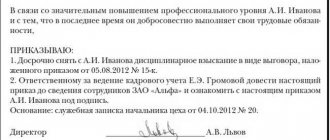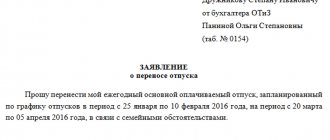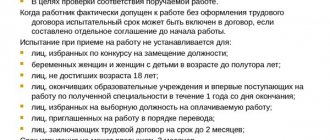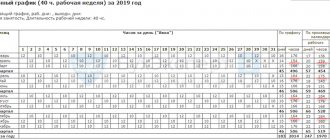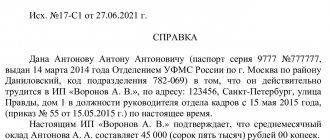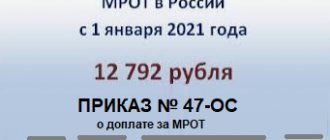Does Article 192 of the Labor Code of the Russian Federation define a reprimand as a type of disciplinary sanction?
A reprimand, along with measures such as reprimand and dismissal, in accordance with the provisions of Art. 192 of the Labor Code of the Russian Federation is a type of disciplinary sanction. At the same time, the management of the enterprise must clearly understand why an employee can be reprimanded. The practical significance of a reprimand can be expressed in 2 main aspects:
- Firstly, a reprimand as a disciplinary sanction may be one of the legal grounds for the dismissal of an employee (Clause 5 of Article 81 of the Labor Code of the Russian Federation) for repeated failure to fulfill duties in the presence of a disciplinary sanction. At the same time, a reprimand, on the one hand, is a disciplinary sanction, and on the other hand, it is a fact that indicates at least a one-time failure by the employee to fulfill his duties. 2 reprimands, provided that they are legal (how to ensure their compliance with this, we will consider later), give the employer the right to dismiss the employee. But only if they were issued for various offenses (Article 193 of the Labor Code of the Russian Federation).
- Secondly, a reprimand can be considered as one of the measures to improve production discipline. From this point of view, its imposition has more psychological than legal significance. An employee who has received a reprimand recorded in his personal file will most likely want to rehabilitate himself in the eyes of the employer and will begin to work better.
Specifics of disciplinary sanctions for certain categories of citizens
Another type of disciplinary sanction is provided for civil servants: a warning about incomplete compliance with official duties.
For military personnel, the list of disciplinary punishments has been significantly expanded:
- severe reprimand;
- deprivation of an award badge;
- warning about incomplete job compliance;
- early dismissal. The reason in this case is failure to comply with the terms of the contract;
- demotion;
- demotion in rank;
- deduction from fees;
- expulsion from an educational institution;
- disciplinary arrest.
These types of punishments are enshrined in special legislative acts on public and military service.
How to reprimand for improper performance of official duties
The official issuance of a reprimand is a legal fact, so this procedure must be properly formalized. The Labor Code of the Russian Federation and other federal regulations do not contain regulations that would determine how a reprimand is issued, but, based on practice, this action is recommended to be carried out according to the following algorithm:
- Firstly, the employer must document the fact of failure (or incorrect performance) by the employee of his duties. Most often, this is done by sending a memo to the director of the company by the immediate supervisor of the employee who committed the misconduct. An offense can also be recorded using a report drawn up by a commission formed by the head of the company to evaluate the employee’s actions.
- Secondly, the employer, before issuing a reprimand, must give the employee the opportunity to explain the actions he committed. To do this, it is necessary to send the employee a notice of the submission of an explanatory note.
- Thirdly, the employer needs to wait 2 days - this is how much time the employee has to draw up an explanatory note (Article 193 of the Labor Code of the Russian Federation). If he does not do this, the employer should draw up a corresponding act. Further (and also in the event that an explanation is presented, but the employee’s arguments do not look convincing), a reprimand can already be issued.
A reprimand is issued by issuing an order signed by the head of the company.
The order to issue a reprimand must:
- indicate that all the documents that we mentioned above are attached to it: a memorandum of misconduct (or an act of the commission), a notice of the need to submit an explanatory note, the explanatory note itself or an act of failure to submit it;
- indicate the dates and names of the relevant documents.
The order to issue a reprimand must be signed by:
- head of the company;
- by the employee himself within 3 days from the date of drawing up the order.
If the employee refuses to sign the document, it will be necessary to draw up a report about this (Article 193 of the Labor Code of the Russian Federation).
Information about the reprimand of an employee can be recorded in the personal file.
Procedure for applying a reprimand
In order to avoid unnecessary difficulties in the future, a reprimand always comes as the second penalty, when a lighter measure—a reprimand—has already been applied to the offending employee.
By first imposing a reprimand on the culprit, the company's management pursues two goals: giving the employee a chance to correct himself, and at the same time taking measures to protect himself from possible legal proceedings. More than one penalty cannot be imposed for the same offense. If a reprimand is issued for a violation, a reprimand for the same violation is no longer announced.
In practice, there are often cases when a judge is primarily interested in the existence of previous penalties for an employee who is defending his case in court. If the defendant is unable to provide documented facts of previous penalties, the very absence of these facts will testify in favor of the plaintiff, since it can be interpreted as too severe the first punishment.
After the remark comes a reprimand. Its appearance in the form of an order for the company is preceded by the following actions:
Recording the fact of an offense
In order for the violation to be officially recorded, the employee’s immediate supervisor is obliged to provide his direct supervisor with an official (report) note describing the fact of the offense.
The note specifies the circumstances, specific persons and the date of the event, and also necessarily contains a phrase approximately as follows: “based on the above, I ask you to take disciplinary measures in relation to...”.
Your own assessment of the episode is allowed, indicating specific articles of misconduct, but only in a presumptive sense.
Act of offense
The presence of one memo can trigger the procedure for imposing a penalty,
however, for greater legitimacy of one's actions, an act is necessary. The act is a more advantageous document in legal terms due to the mandatory inclusion of at least three names in it. These must be employees working in the same department. In case of disputes, they will be witnesses to what happened.
The act is drawn up in any form indicating the same data as in the memo, only without your own comments. The text begins with the words “We, the undersigned... have drawn up this act in that...”.
The Act must contain the phrase that the person who committed the offense is “invited to give explanations in writing.” The name of the violator must also be among those who sign the act. However, it is impossible to require his signature. In case of refusal to sign, opposite his last name, the author of the act adds the phrase “Refused to sign” and puts his own autograph.
Notice of provision of written explanation
It is advisable to get an explanation from the employee, but you cannot demand it from him. The right to an explanation is enshrined in the Constitution of the Russian Federation (Article 27), but the employee may not use it. Also, the right to demand explanations from a subordinate is enshrined in the Labor Code of the Russian Federation (Articles 192 and 193). They regulate the employer's procedures.
The notification is delivered to the employee against signature, after which a written response is expected within 2 days.
In case of refusal to sign, an act of refusal to provide a written explanation is drawn up.
Act of refusal to provide a written explanation
The act is drawn up 2 days after the date of the Notification (see above), this time period is fixed in Art. 193 Labor Code of the Russian Federation. Drawing up this act ahead of schedule will serve as an argument in favor of the offender in the event of a trial.
Order of reprimand
Once the management has all four of the above documents, executed in full form, an order to issue a reprimand is drawn up. It is compiled in any form, but must contain:
- serial number (according to internal document flow),
- date,
- information about the manager and employee,
- the reason for the reprimand (a specific description of the offense, but without going into detail),
- link to the appendices to the order (the appendices are listed in a numbered list and represent the first 4 documents).
Is it possible to reprimand without reprimand and is it issued for absence from work?
A remark is also a disciplinary sanction, but is considered a milder sanction, since Art. 192 of the Labor Code of the Russian Federation is slightly higher in the list of punishments. A reasonable question arises: should a reprimand be preceded by a reprimand, or can it be avoided?
Labor legislation does not rank punishments according to the degree of guilt and does not establish a strict sequence for their imposition. Therefore, the employer himself has the right to assess how great the employee’s guilt in the violation is and what sanction he deserves.
Thus, a reprimand may be issued for absence from work if there were valid reasons for missing work time, a reprimand may be issued if this was done deliberately without significant grounds, and even dismissal is possible when such a violation is systemic in nature.
Here only one constant principle should be observed: one violation - one type of punishment.
What is a severe reprimand and how is it different from a regular reprimand?
The Labor Code does not contain a definition of a severe reprimand, but this form of disciplinary action may be provided for certain categories of employees. In particular, such penalties are applied to employees of the customs service, internal affairs bodies, employees of the prosecutor's office, the investigative committee, military personnel, employees of Russian Railways, notaries and civil servants.
A severe reprimand is considered a more serious form of disciplinary action, from a legal perspective, than a reprimand. That is, he is declared for more serious violations.
But otherwise, it has few differences from a regular reprimand, and the legal consequences associated with a severe reprimand for employees must be spelled out in the employer’s local documentation.
When is a reprimand issued?
A reprimand, like any other disciplinary sanction, must be issued by the employer within a month after the employee’s misconduct is revealed. The company has no right to punish the employee later. This period may be extended if the employee is absent from work due to being on sick leave or on vacation (including study).
The maximum period within which an employer has the right to issue a reprimand is 6 months. However, if a misconduct is revealed during an audit (for example, an audit), a reprimand can be issued no more than 2 years from the established date of the commission of this misconduct.
Dismissal
You can't just fire an employee. The grounds for termination of an employment contract at the request of the employer are clearly listed in Art. 81 Labor Code of the Russian Federation:
- the employee has not passed the certification;
- absenteeism (absent from work for more than 4 hours in a row);
- came drunk, under the influence of drugs or other illegal drugs;
- grossly violated official duties;
- received disciplinary punishment and still did not do the work;
- disclosed commercial (state, official) secrets;
- stole and damaged the property of the organization or colleagues and was sentenced by the court to liability;
- violated labor protection and caused an accident or knowingly created such a threat;
- committed guilty actions related to material values and lost trust;
- did not submit a certificate of income or provided false information (for civil servants under the Law of July 27, 2004 No. 79-FZ “On the State Civil Service...”);
- committed an immoral act (for educational workers);
- made an unreasonable decision that led to damage to the organization’s property (for directors, deputies and chief accountants);
- When applying for a job, he brought false documents.
In addition, when the owner changes, the new owner can appoint his own director, deputy and chief accountant. And when an enterprise is liquidated or its workforce is reduced, the employees are first offered another job. And, if they refused in writing, you can fire them under Art. 74 Labor Code of the Russian Federation.
It is impossible to dismiss an employee on sick leave or on vacation, except in cases of liquidation of the enterprise or termination of activities by an individual entrepreneur.
Punishing an employee: step-by-step instructions
The procedure for applying disciplinary sanctions is set out in Art. 193 Labor Code of the Russian Federation. Let's look at the procedure using a specific example.
Example 2
Lyudmila, a cloakroom attendant at a medical center, left her workplace without warning. As a result, patients were unable to return clothing and were late for appointments. The misconduct was discovered by a senior nurse who received a complaint from citizens. She wrote a report, and now we have to issue a disciplinary punishment.
Sample reprimand for improper performance of official duties
In order not to create a new document every time and not remember how this or that information is presented in it, it is better for the company to use a ready-made template. We present one version of the document on the website. Before reprimanding an employee, management will have to take this example as a basis and, if necessary, changing the wording and surname of the offending employee, print the required order.
Repented, improved
If a year has passed and no new records of penalties have been added to your personal card, the heavy burden of punishment is automatically removed.
IMPORTANT! If 365 days have not yet passed, and labor discipline is again violated, this may become a legal basis for dismissal.
If the employer decided before the expiration of the one-year period that the employee had reformed (whether he made such a decision himself, or the punished person requested this), the reprimand can be lifted early. To do this, it is enough to issue an appropriate order. After it comes into force, it is considered that the employee has no disciplinary sanctions.
How can an employee appeal a reprimand ?
How can an employer cancel a reprimand?
It happens that the employer comes to the conclusion that the employee was punished unlawfully and wants to remove the reprimand from him. How can I do that?
Very simple. All that is required to cancel a reprimand is to issue an appropriate order from the head of the company. It can be drawn up at any time (Article 194 of the Labor Code of the Russian Federation). The order to remove the reprimand must contain a reference to the order to issue the reprimand, indicating its date and number. You can see a sample order to remove a reprimand in the ConsultantPlus system. To do this, sign up for a free trial access to the system.
The employee himself or his immediate superior can also apply to have the reprimand lifted.
A sample of drawing up a petition to lift a disciplinary sanction was prepared by K+ experts. Get a free trial access to the system and proceed to the sample.
An employee is considered to have a disciplinary sanction after it has been issued for exactly 1 year, if during this time he does not commit other offenses, followed by other disciplinary sanctions (Article 194 of the Labor Code of the Russian Federation). In this regard, there is one more option for removing a reprimand from an employee - wait for its automatic cancellation.
Removing a reprimand from an employee
The reprimand is not issued on a permanent basis. Its validity period is limited by law. It could be:
- One year from the date of announcement. This period of validity of a penalty is practiced in cases where, after announcing a reprimand, the employer did not initiate the issue of its early termination. It is believed that at the end of the year from the moment the penalty was issued and no other penalties were applied to the employee, he can be considered to have had no disciplinary punishments. Thus, the reprimand is automatically lifted without the need to sign any documents.
- Early termination of a reprimand. If the imposed penalty has fulfilled its educational function, the employer has the right to remove the reprimand early. There are no clear minimum and maximum terms for such a procedure. Here everything is left to the specific employer. In practice, a reprimand can be lifted within a month after it is issued. To do this, the immediate supervisor of the punished worker must submit a petition to the employer, indicating what has changed since the reprimand was announced, and how this affected the employee’s behavior. In this case, the removal of the reprimand is carried out by order of the manager. There is no need to hold any meetings, approvals, or meet deadlines.
Remember, in order to remove a reprimand early, it is necessary to correct the situation due to which it was announced, and also to prove through real actions that this had the desired effect of punishment.
Legal consequences of a reprimand for an employee at work
According to Art. 66 of the Labor Code of the Russian Federation, data on the reprimand are not recorded in the work book. As a last resort, the personnel service may (but is not obligated to) enter information about the reprimand into the employee’s personal card, which is an internal document. So the new employer, as well as any other entity, most likely will not know that any disciplinary action has been taken against the person.
This means that from the point of view of relations with the new employer (or some other persons legally independent of the current employer), the presence of a reprimand at work will not have significant legal consequences for the employee.
But the employee may be interested in maintaining his current job. And in this case, it will be useful for him to pay attention to one nuance.
In accordance with paragraph 5 of Art. 81 of the Labor Code of the Russian Federation, the employer has the right to dismiss an employee if he repeatedly fails to fulfill his official duties. This includes an offense for which the employee was reprimanded. The nuance is that the employer can use the following interesting mechanism for applying the norms of paragraph 5 of Art. 81 of the Labor Code of the Russian Federation, taking into account the provisions of Art. 193 of the Labor Code of the Russian Federation, establishing a one-month period for issuing disciplinary sanctions.
Having discovered an employee’s misconduct, the employer can, according to the established scheme, reprimand him and immediately issue a new order - for some other offense within a month’s prescription (if, of course, there was such an offense).
It turns out that the employer will have 2 proven facts of violation of labor discipline and he will immediately have the right to dismiss the employee. So employees who have once committed an offense to which the employer seems to have turned a blind eye should not provoke their superiors to impose an official disciplinary sanction - it may have direct legal consequences for them in the form of dismissal.
Let's sum it up
- Disciplinary action is voluntary; the law does not oblige the employer to punish employees. You can warn in words, but it has no legal force.
- If you decide to punish, then you need to choose one of the options established by law - reprimand, reprimand, dismissal. Termination of the contract is possible only for specific offenses described in Art. 81 Labor Code of the Russian Federation.
- The collection is valid for a year and is automatically canceled. If the manager allows it, it can be removed early.
Hello Guest! Offer from "Clerk"
Online professional retraining “Accountant on the simplified tax system” with a diploma for 250 academic hours . Learn everything new to avoid mistakes. Online training for 2 months, the stream starts on March 1.
Sign up
Reprimanding an employee: legal consequences for the employer
A reprimand is a legal fact, and it must be correctly executed. Many people forget that, for example, the Labor Code of the Russian Federation does not provide for any severe reprimands. The employer has no right to officially use this phrase. If he nevertheless gives the employee a severe reprimand, then the labor inspectorate (if the employee complains there) can:
- firstly, impose an impressive fine on the company based on clause 1 of Art. 5.27 Code of Administrative Offenses of the Russian Federation;
- and secondly, to cancel the order imposing a severe reprimand.
In addition, the employer has the right to impose any disciplinary sanction, including a reprimand, only if the employee fails to perform or performs his job duties incorrectly. However, these responsibilities must be recorded somewhere: in a contract, job description, labor regulations. And if the employer for some reason did not familiarize the employee with his duties against signature, then he does not have the right to reprimand for their failure to fulfill them.
Dismissal on the basis of a severe reprimand, other non-existent disciplinary sanctions, as well as when the reprimand is issued outside the regulatory framework, can be successfully appealed by the employee in court with a high probability of success. As a result, the court may oblige the employer to reinstate the person at work. And immediately. If the company does not do this, it will have to pay the employee a salary for the time that he was absent from the workplace, although by virtue of a court decision he should have been present (Article 396 of the Labor Code of the Russian Federation).
What can lead to disciplinary action?
Sometimes an employer has to deal with the fact that an employee does not fulfill or improperly performs his direct duties.
In this case, the labor legislation of the Russian Federation provides for the right of the employer to take disciplinary action against the offending employee. A disciplinary sanction is applied to an employee when it is established that he has committed a disciplinary offense. A disciplinary offense may be considered a violation of an employee’s obligations as stated in the employment contract, job description, internal labor regulations and other provisions of the organization. Most often, punishment follows for non-compliance with labor discipline - in the case of:
- systematic tardiness and/or absenteeism;
- premature departures from work;
- failure to comply with management instructions;
- reporting to work under the influence of alcohol or drugs.
The list of disciplinary offenses can be continued depending on the specifics of the organization. As a rule, violations of labor safety rules, disclosure of confidential information, and non-compliance of the work performed with accepted quality criteria are most severely punished.
Appeal period
The employee may not agree with the disciplinary sanction and may not admit his guilt. In such a situation, it is possible to challenge the punishment. The law provides for time limits for appealing a penalty. They depend on the seriousness of the offense and the punishment that was applied:
- An order for a reprimand or reprimand can be contested within 3 months after its issuance. The countdown of the period begins from the moment the employee familiarizes himself with the order.
- If dismissed for labor misconduct, an employee can file a complaint against the manager’s unlawful actions within a month. The period is counted from the moment the employee received a copy of the order to terminate his employment contract.
You can appeal the punishment to the labor inspectorate, the prosecutor's office or the courts. To do this, you need to write a statement indicating violations on the part of the employer. The document is accompanied by evidence that the punishment is not justified.
An employee’s application to the labor dispute commission regarding a disciplinary sanction (sample) Statement of claim to appeal a disciplinary sanction (sample)
If a labor inspector or judge finds violations in the actions of the employer, then a fine of up to 50,000 rubles may be issued to him (Article 5.27 of the Code of Administrative Offenses of the Russian Federation). If an employment contract with an employee is illegally terminated, he must be reinstated in his previous position. The court has the right to oblige the employer to pay the employee wages for a period of downtime through no fault of his own, as well as moral compensation.
The deadline for appealing a disciplinary sanction can be restored if missed for a valid reason. The latter include a business trip, sick leave, etc. The employee must provide documentary evidence that there were good reasons for not filing a complaint within the period established by law.
Expert commentary
Kolesnikova Anna
Lawyer
The validity period of a disciplinary sanction cannot exceed one year from the date of the decision on it. The only exceptions are situations when an employee repeatedly commits violations. In this case, the period of validity of the punishment will be increased by another year from the date of publication of the new administrative document.
The manager can punish an employee within a month after he commits a disciplinary offense, for which a corresponding decree is issued. The employer may issue a reprimand or reprimand, depending on the severity of the violation. In some cases, provision is made for the dismissal of an employee at the initiative of the manager. If the employee disagrees with the severity of the offense, he can appeal the employer’s decision within a month in court.
Early withdrawal of foreclosure
Typically the duration of a disciplinary sanction is one year. But it can be reduced:
- on the personal initiative of the employer;
- at the personal request of the employee;
- at the request of a trade union or other representative body;
- at the personal request of the employee’s immediate supervisor.
The employer may apply early termination of a disciplinary sanction at any time. The sample order or order will be similar to other non-standard personnel documents.
The employee may himself request early removal of the reprimand or reprimand. In this case, they write a memorandum and attach a statement. The same documents are drawn up by the trade union and the head of the unit. In case of early withdrawal of the penalty, it will be considered that the employee did not have it. All supporting documents are destroyed.
Duration of punishment
A disciplinary sanction in the form of a reprimand or reprimand is valid for one year. Once the misconduct is discovered, the employer issues an order to punish the person responsible. The period of validity of the penalty begins from the day on which the administrative act is dated. During this period, the employee may be deprived of bonuses, additional payments and other bonuses that he is entitled to.
The manager does not have the right to reduce or increase the duration of the punishment at his own discretion. However, he can remove disciplinary liability from the employee at any time. For this purpose, an order is issued at the organization level. The labor inspectorate, prosecutor's office and other services cannot influence the reduction of the duration of the disciplinary sanction.
Order to lift a disciplinary sanction (sample)
The punishment is valid for one year after the relevant order is issued. After this period, the disciplinary sanction is lifted from the employee. The exception is one more misconduct in the workplace that entails punishment. In this case, the validity period of the disciplinary sanction is extended from the day when a new decision was made on the employee’s guilt.
